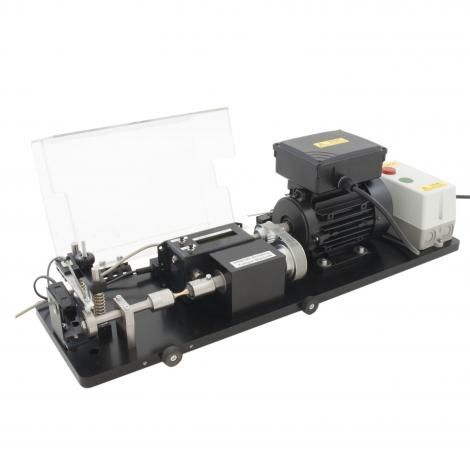This unit has been designed to introduce students to the effects of material fatigue using a sinusoidal variation of bending stress.
A 2800rpm motor rotates a specimen through a gear and pulley arrangement between 5600 or 1400 rpm. The specimens are held within ‘keyless’ chucks and loaded using a cantilever arrangement, with the load being applied through a screw jack mechanism with integral cantilever load cell.
A digital interface displays the applied force and revolution count of the specimen. Both values can be reset and zeroed (tared) prior to the testing commencing. When specimen failure occurs, a micro switch stops the motor and the cycles to failure are registered on the digital display. The count remains when the motor is not running. A safety guard shields all rotating parts.
The digital interface incorporates a USB socket, which allows a host computer (not supplied) to be connected to the HSM19D. The software supplied with the HSM19D allows the capture and reviewing of data. Through an appropriate spreadsheet software (not supplied), printing and manipulation of data can be completed.
Specially machined necked test specimens are provided in steel. These have a 4mm nominal neck diameter. All tooling is provided to allow the removal and fitting of these specimens. A full technical Instruction manual is supplied, which details full unit operation, experimental technique, example results and relevant theory.


